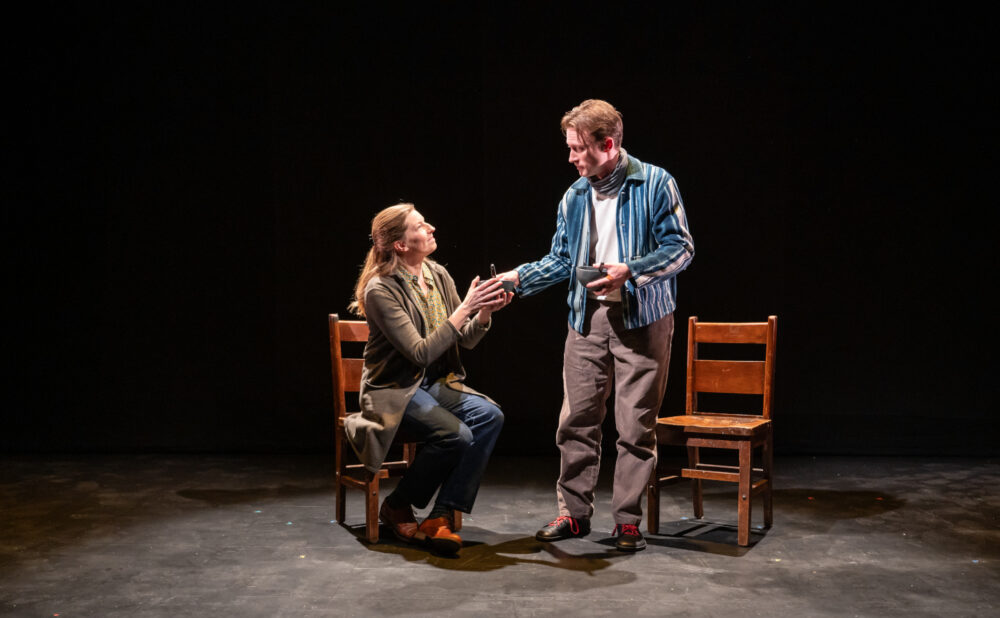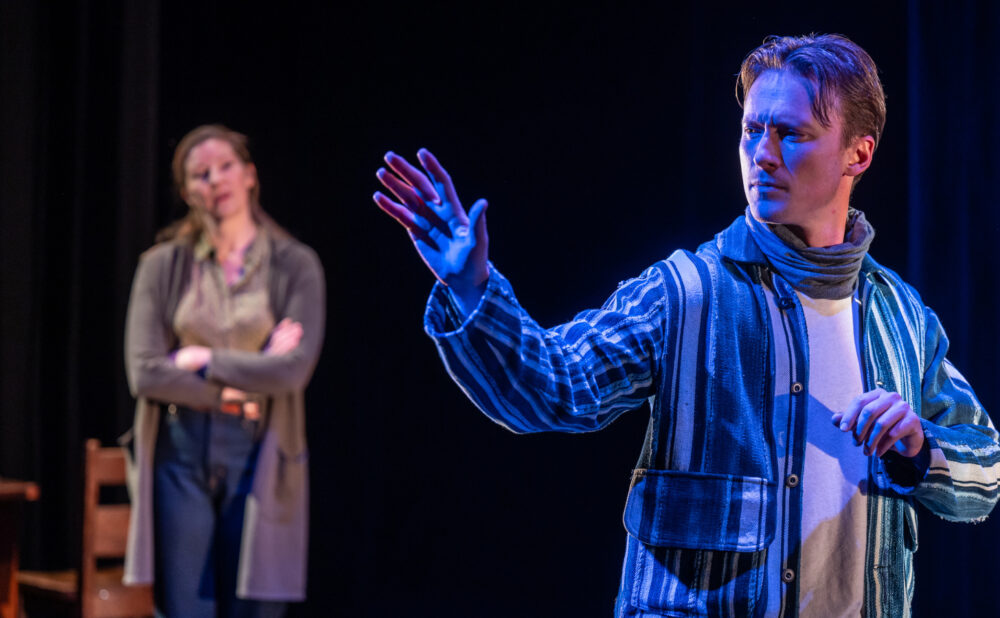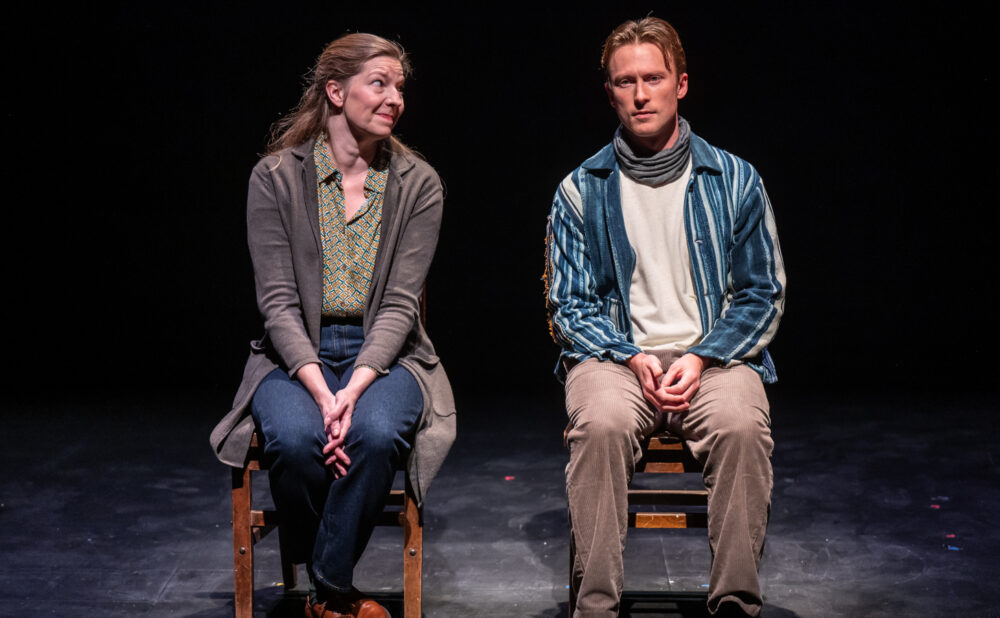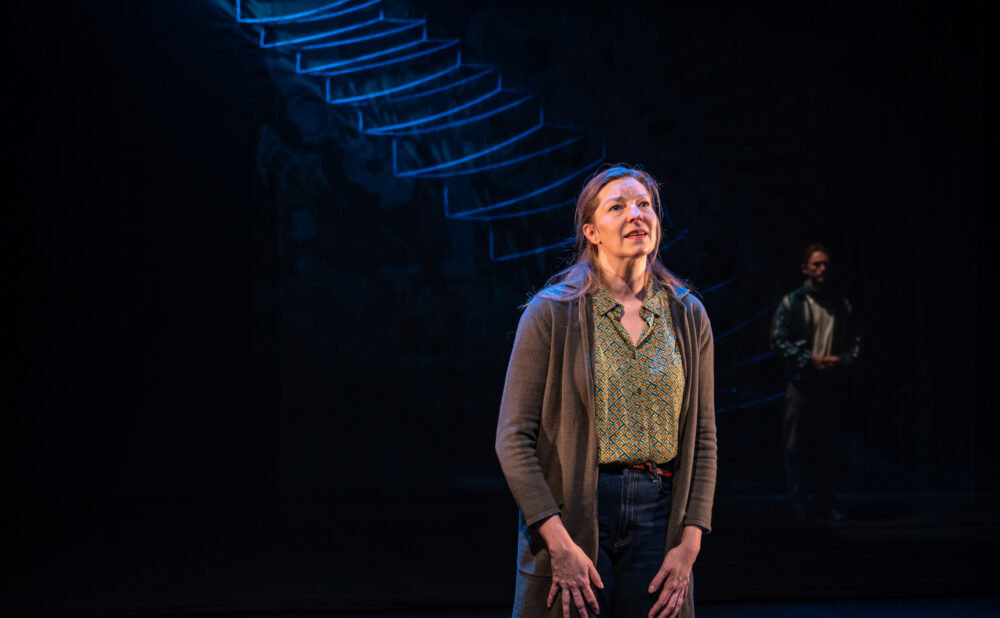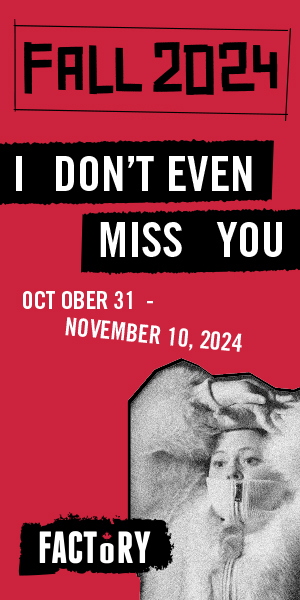‘Letters from Max, a ritual’ carries on a poet’s legacy at the Theatre Centre
A richly philosophical and tender biographical tribute
What: Letters From Max, a ritual
Where: The Theatre Centre, Franco Boni Theatre, 1115 Queen St. W.
When: Now, until Sun., Dec. 3
Highlight: Moments of movement and silence shine within the linguistically electric.
Rating: NNN (out of 5)
Why you should go: A tender tribute to a real-life poet who lived passionately.
LETTERS FROM MAX, A RITUAL presented by Necessary Angel Theatre Company is a richly philosophical and tender biographical tribute to real-life Max Ritvo from his Yale playwriting professor, Sarah Ruhl. Based on Sarah Ruhl’s book, the piece is told through their emails, texts and meetings spanning time and distance. Max’s first message to Sarah begins simply as a student asking for permission to take her playwriting class, but as Max’s sarcoma returns from when he was a teenager, Sarah and Max’s correspondence surpasses the everyday or even academic, turning to the poetic and introspective.
“Listening, speaking, breathing,” one writes in a poem near the beginning of the play. Though this sounds redundant as it’s true of most plays, these three words especially encapsulate the extraordinary spirit of this two-hander by Ruhl. These two people truly and actively listen to one another, the characters on stage spending equal time silent as they do in philosophizing speech. They hold space for one another, emotionally, intellectually and as human beings. Maeve Beaty and Jesse LaVercombe deliver poems with rooted emotionality and naturalism, and it feels almost invasive at times to be privy to their academic ponderings.
At 2 hours and 15 minutes, this piece is approached with rather barebones blocking by director Alan Dilworth. The first act is accompanied by wooden tables on each side of the stage and four chairs that are moved and removed to represent different places; the set in the second act dwindles down to only two chairs. This works well as when Max and Sarah share their words, the audience has no choice but to sit with the larger ideas at hand. Projections are used sparingly and effectively, an image faintly popping up seemingly at every moment a new analogy about death is explored by the two academics, eventually culminating into all these images intertwining.
Moments that lean into theatricality create little diamonds within this verbosely dense piece. In the early stages of their correspondence, Max describes how he has a tradition of getting bird tattoos after each of his treatments and performs a movement piece embodying a bird. This movement series then is repeated by Sarah at the end of the play. In such a linguistically-powered play, these short episodes of silence and movement speak volumes.
This is a gorgeous tribute to Max, but at times, I find that some statements begin to lose their impact in a piece with so many poems back and forth. Especially in the second act, the structure becomes repetitive, and it becomes difficult to engage with all the material actively. I’d caution against this piece if you’re prone to zoning out during lengthy speeches, especially if you’re not as familiar with philosophical references and well-known authors, as admittedly the piece can air on the pretentious. Densely academic conversation doesn’t always make for super enthralling theatre for all, unfortunately. But if you do have the stamina and interest to sit through the inner ponderings of two artists, Ruhl makes the piece extraordinarily rewarding.
Describing the letters between them as “a ritual” is such a tender way to narrate the way Max and Sarah communicate. There is something very ritualistic in their sharing, listening and absorption of poetry and writing. Max and Sarah have such a deep platonic and academic bond that explores happiness, death and life in a way that some people could go their entire lives without experiencing. To know a person through their words, fully and purely, as we as an audience get to know Max is a privilege.

